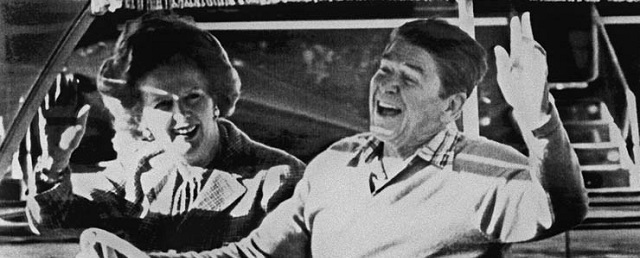In April 1975, leader of the opposition Margaret Thatcher found her political soulmate at the House of Commons in London. Reagan, who had recently left office as governor of California, was in London to deliver a speech to the Pilgrim Society and handed her an enthusiastic message:
“Please know,” Reagan wrote, “you have an enthusiastic supporter out here in the ‘colonies.'”
Many underestimated Ronald Reagan at the time. “A grade B actor,” they called him. But Mrs. Thatcher didn’t and their ascension was parallel. She would win the elections four years later, and be a Primer Minister from 1979 to 1990, a period that encompassed Reagan’s two terms in the White House. Their political friendship was one of the most solid and fascinating of the past 50 years, the most important Anglo-American alliance since that of Winston Churchill and Franklin Roosevelt.
As Mrs. Thatcher said once, she and Mr. Reagan shared a rather unusual characteristic: they were in politics because they wanted to put their philosophy into practice. Both shared humble backgrounds, both were committed to a conservative revolution: fight communism, dismantle government bureaucracies and deregulate key industries.
Unquestionably, they played as a team. Together they exerted pressures on the Soviet Union that helped speed the end of the cold war. The sharp-tongued Iron Lady backed up President Reagan as he stationed intermediate-range American missiles in Western Europe to challenge the Soviet’s, a decision that caused big protests in Europe. He offered her the same unconditional support when she resolved to send troops to the Falkland Islands.
Several months before Ronald Reagan passed away, Mr. Thatcher recorded an elegy for her friend, who as herself had always struggled to be part of the boys club:
“As the last journey of this faithful pilgrim took him beyond the sunset, and as heaven’s morning broke, I like to think — in the words of Bunyan — that ‘all the trumpets sounded on the other side,'” she said.
Mrs. Thatcher said Mr. Reagan was the second most important man of her life. He called her “the best man in England”.






Be the first to comment on "Ronnie and Maggie, political soulmates devoted to deregulation"